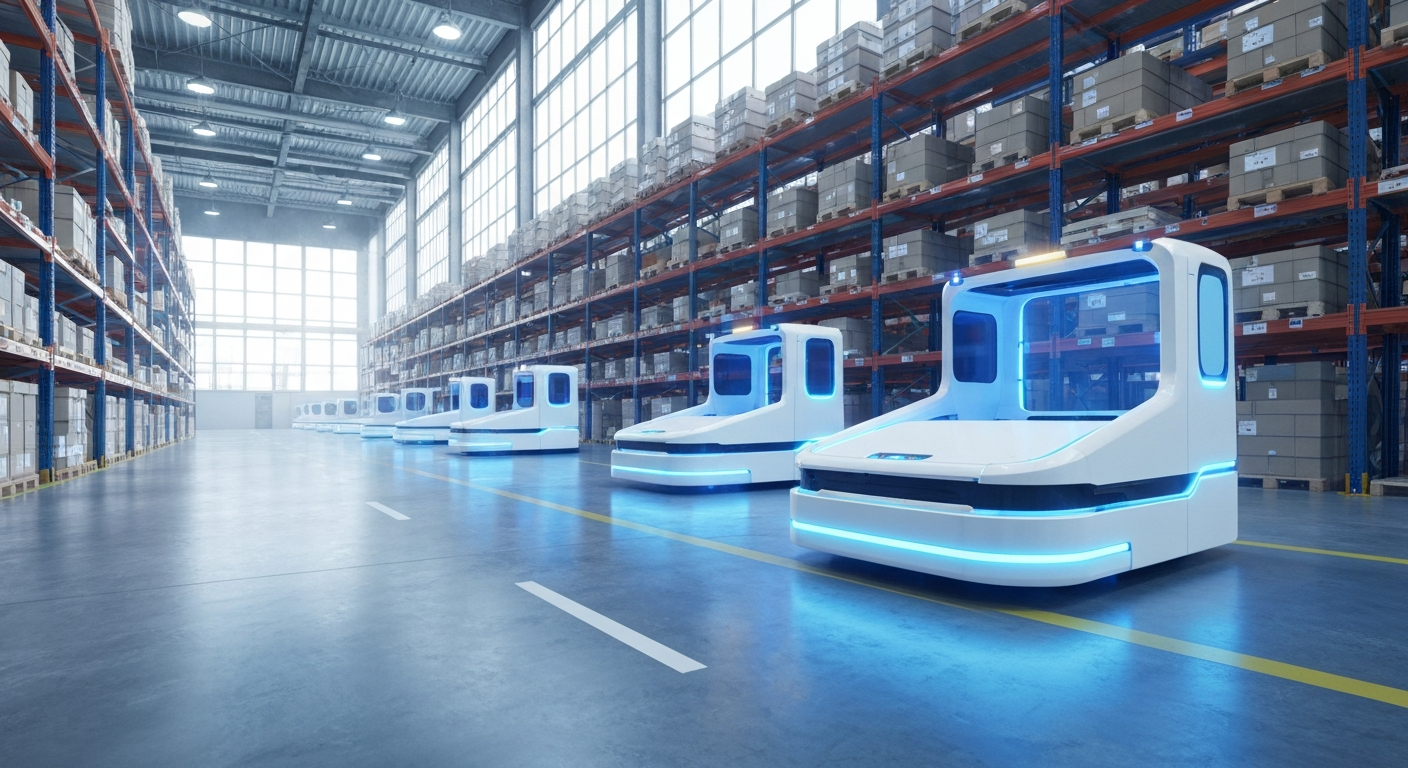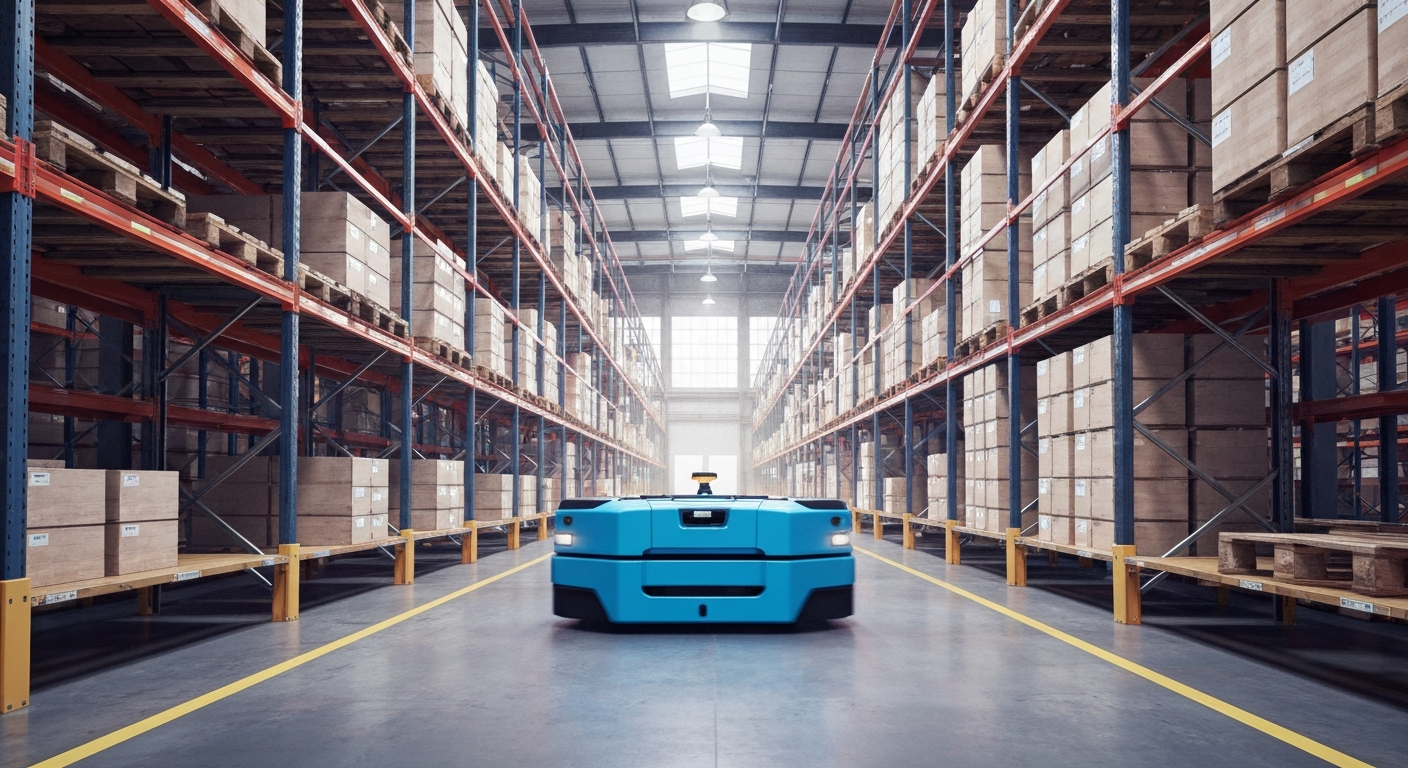Industry 4.0 Examples
Industry 4.0, often referred to as the fourth industrial revolution, has ushered in an era of remarkable progress and innovation in the realms of manufacturing and technology. This groundbreaking wave of transformation has brought forth significant advancements that have reshaped entire industries, propelling them towards unprecedented levels of efficiency, productivity, and profitability. With its profound impact on automation, data exchange, artificial intelligence, and other cutting-edge technologies, Industry 4.0 has paved the way for a future that promises limitless possibilities and unparalleled growth potential. In this remarkable era of transformation, we have witnessed the advent of a multitude of groundbreaking technologies that are reshaping industries and fundamentally revolutionizing the way we work. These innovative advancements have empowered businesses with unprecedented opportunities for growth, efficiency, and competitiveness. From artificial intelligence to automation, from cloud computing to blockchain technology, these game-changing innovations have paved the way for a new era of productivity and success in virtually every sector. As we embrace these transformative technologies, we are witnessing a paradigm shift that is propelling businesses into uncharted territories of possibilities and redefining the very fabric of modern work culture.
When we delve into the realm of Industry 4.0, it becomes evident that one of the most prominent and impactful examples in the manufacturing sector is the seamless integration of automation and robotics. This cutting-edge technology has revolutionized traditional manufacturing processes by streamlining operations, enhancing efficiency, and boosting productivity to unprecedented levels. By harnessing the power of advanced robotics and automated systems, manufacturers are able to achieve unparalleled precision, accuracy, and consistency in their production lines. This not only leads to a significant reduction in human error but also paves the way for increased profitability and competitiveness in today's fast-paced global market. The implementation of automation and robotics truly marks a pivotal milestone in ushering us into a new era of manufacturing excellence and innovation. Thanks to the remarkable advancements in machinery and intelligent systems, factories have witnessed a revolutionary transformation in their operations. These cutting-edge technologies have empowered factories to operate with unparalleled levels of efficiency, speed, and accuracy. By seamlessly integrating advanced machinery into their production processes, factories can now optimize every aspect of their workflow, resulting in enhanced productivity and reduced costs.
With intelligent systems constantly monitoring and analyzing data, factory owners can make data-driven decisions that further improve overall performance. Embracing these technological innovations has become essential for factories striving to stay ahead in today's highly competitive market. By leveraging the power of Industry 4.0, not only can we significantly reduce the occurrence of human error, but we can also witness a substantial boost in productivity and overall output. These intelligent tools are designed to meticulously analyze and refine written content, ensuring that it is error-free, coherent, and engaging. This not only saves valuable time that would otherwise be spent on tedious proofreading but also allows writers to focus their energy on more creative aspects of their work. With Industry 4.0 by our side, we can confidently expect an impressive increase in productivity as well as an exceptional output that meets the highest standards.
Furthermore, the advent of Industry 4.0 has ushered in a new era of manufacturing with the emergence of smart factories. These cutting-edge facilities are equipped with interconnected devices that communicate seamlessly with each other through the revolutionary concept known as the Internet of Things (IoT). This connectivity enhances efficiency, productivity, and collaboration among various components within the factory ecosystem. The integration of IoT technology has enabled real-time monitoring, predictive maintenance, and streamlined operations, paving the way for a more intelligent and responsive manufacturing landscape. The seamless connectivity facilitated by advanced technologies enables businesses to harness the power of real-time monitoring and control across various critical aspects of their operations. This includes but is not limited to efficient inventory management, streamlined supply chain logistics, and rigorous quality control measures. By leveraging this level of connectivity, businesses can gain immediate insights into their operations, make informed decisions promptly, and optimize processes for enhanced productivity and profitability. It empowers organizations to stay ahead in a fast-paced business environment where every second counts.
The benefits unleashed by the revolutionary concept of Industry 4.0 are truly vast and awe-inspiring. This groundbreaking paradigm shift has opened up a world of possibilities, propelling businesses to new heights of success and innovation. By seamlessly integrating cutting-edge technologies such as Internet of Things (IoT), artificial intelligence (AI), and big data analytics, Industry 4.0 empowers organizations to optimize their operations, enhance productivity, and achieve unparalleled efficiency across the entire value chain. One of the most remarkable advantages of Industry 4.0 is its ability to drive unprecedented automation in manufacturing processes. By harnessing AI-driven robotics and smart machines, companies can streamline their production lines, reduce human error, and achieve unmatched precision in every aspect of their operations. This not only translates into significant cost savings but also allows for faster time-to-market, giving enterprises a competitive edge in today's fast-paced global market. Furthermore, Industry 4.0 facilitates real-time data collection and analysis on an unprecedented scale. With sensors embedded in every corner of the production floor, businesses gain invaluable insights into their operational performance in real-time. This wealth of data enables them to make informed decisions quickly and accurately, optimizing resource allocation, predicting maintenance needs before breakdowns occur, and identifying potential bottlenecks or inefficiencies that may hinder productivity. Moreover, Industry 4.0 fosters enhanced collaboration between humans and machines through seamless connectivity enabled by IoT technology. By leveraging interconnected devices across various departments within an organization or even across different organizations within a supply chain network, stakeholders can collaborate more efficiently than ever before. This results in improved communication channels that facilitate quicker decision-making processes while promoting greater transparency throughout the entire value chain. Notably, the benefits offered by Industry 4.0 extend far beyond just manufacturing alone; it permeates across multiple industries such as healthcare, logistics, agriculture, energy management systems - revolutionizing business models at every turn. In conclusion, the vast array of advantages brought about by Industry 4.0 is truly transformative. It propels businesses into a realm of unparalleled efficiency, innovation, and competitiveness. As we embark on this exciting journey into the future, embracing the power of Industry 4.0 is not only beneficial but crucial for organizations aiming to thrive in today's rapidly evolving landscape.
With the advent of advanced technology, manufacturers now have access to a powerful tool that empowers them to optimize their operations in unprecedented ways. By utilizing AI-driven solutions, manufacturers can streamline their processes, resulting in increased efficiency and reduced costs. Moreover, predictive maintenance strategies enabled by AI enable manufacturers to proactively address issues before they escalate, minimizing downtime and maximizing productivity. Another key benefit that AI brings to manufacturing is the ability to enhance product quality through automated inspections. By leveraging computer vision and machine learning algorithms, manufacturers can ensure consistent and precise inspections at every stage of the production line. This not only reduces human error but also boosts overall product quality, leading to higher customer satisfaction rates. Furthermore, AI-powered automation enables manufacturers to deliver products faster and more efficiently than ever before. By automating various aspects of the production process such as inventory management, order fulfillment, and logistics planning, companies can significantly reduce lead times and improve overall supply chain efficiency. This ultimately translates into improved customer satisfaction as customers receive their products in a timely manner. In summary, the integration of AI technologies into manufacturing processes offers numerous advantages. From streamlining operations and reducing costs through predictive maintenance strategies to improving product quality via automated inspections and enhancing customer satisfaction by delivering products faster and more efficiently – these benefits highlight why embracing AI is crucial for manufacturers looking to stay competitive in today's rapidly evolving market landscape.






